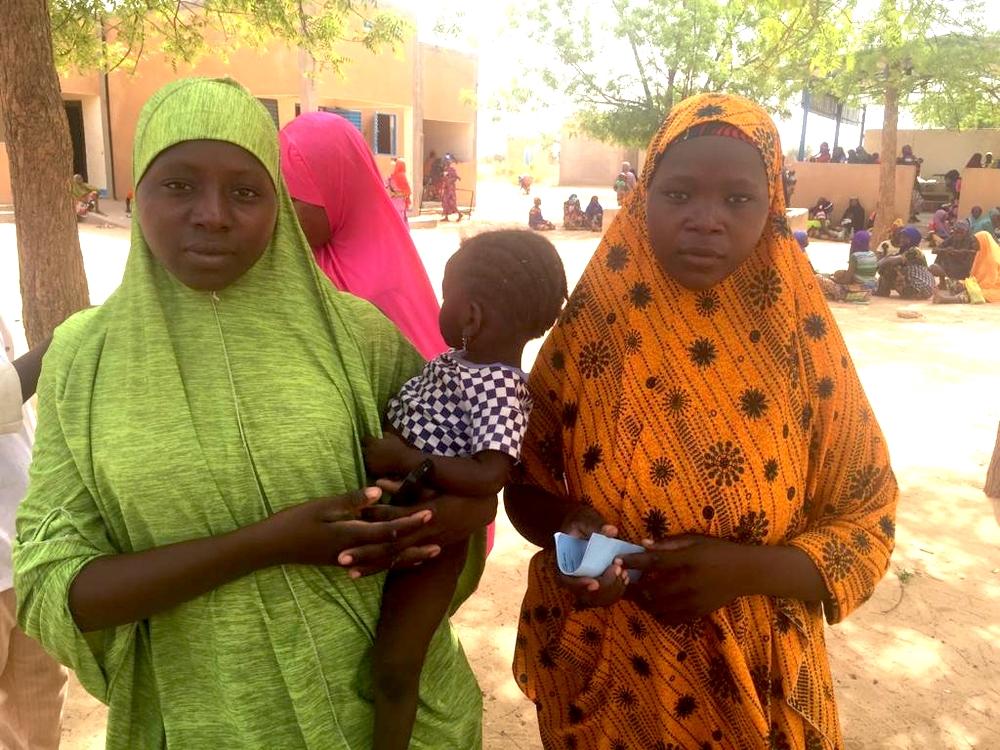“If you resist, or just speak, they kill you”, explains Chitou Abdou, now a refugee in Niger, to describe recent attacks by gunmen in his hometown in Nigeria. Brutal abuses including murders, torture, robberies and kidnapping have sharply risen in Sokoto and Zamfara states, prompting in May about 20,000 people like him to flee and cross into Maradi region in southern Niger. They found refuge with local Nigerien communities who, despite living in already precarious conditions, share space and resources with the newly arrived.
Since last year, the security situation in Zamfara and Sokoto states in Nigeria has kept deteriorating, triggering regular movements of population into neighbouring Niger. Unlike Borno and Yobe states, still mired into the regional conflict involving different armed groups, violence there appears to come from increased and particularly ruthless acts of banditry. It reached a critical point last month, in particular in Sokoto state, forcing thousands of people to flee, including 20,000 to Niger in Guidan-Roumdji in Maradi region. According to the UN, over 25 towns in Sokoto are now completely empty as their inhabitants ran away.
A refugee from Guetce (Sokoto) who is currently in Niger told us about his journey: “We fled because armed bandits come in the villages. They wear hoods, they steal cattle and ask everyone for money. If you have nothing, they ask if you know someone who has some. Villages nearby ours got attacked. In Kassali, attackers were met by local hunters. But they still killed 14 villagers and managed to take away some others. After they left, around the time of Maghrib prayer, we began to evacuate the wounded to Bourkoussama. They had gunshot injuries. One of my friends came to get me on a motorcycle to Garin Maza. We spent the night in the bush, with the oxen of one of our parents. In the shadows, we could see the bandits patrolling the area.”
Similar accounts of armed incursions by gunmen subjecting local populations to all sorts of violence are shared by many of the refugees now in Guidan-Roumdji in Niger. They tell of groups of up to 20 men showing up in villages with rifles, intimidating villagers and asking if they own a property or knows someone who does. It can lead to robberies, kidnapping for ransoms, killings, rape or torture.Fear is widespread, as those whose villages have not yet been attacked worry they will be next.
End of May, MSF teams went to assess the situation in Guidan-Roumdji. Refugees stay with host families and in schools or abandoned buildings. “While some of the wealthiest countries’ governments prefer to turn refugees away and push them back into danger, we see here communities under already huge strain welcoming within a few weeks 20,000 people in search of safety. But the conditions are very precarious and the current influx of refugees is overstretching local services and resources,” says Abdoul-Aziz O. Mohamed, MSF Head of Mission in Niger. The newly arrived refugees even outgrow local population numbers in some locations. According to local authorities, some 300 households are currently hosting over 450 families of refugees in Tankama area, and more than 4,500 refugees arrived in Bassira, with less than 3,000 inhabitants.
“In addition to the various visits and meetings to evaluate the situation, we also provided an immediate support to the health structures, as some may quickly get overwhelmed by the numbers of patients in need of treatment,” explains Dr A. M. Abdoul-Rachid, who managed the medical evaluation in Guidan-Roumdji. MSF donated drugs and equipment to treat patients against the most common diseases like diarrhoea and malaria.
Trends of admissions in therapeutic feeding centers are for the moment stable, but this is likely to change with the seasonal peak of malnutrition and malaria generally hitting the region from July to October. Another worrying factor, the vast majority of refugee children have reportedly never received a vaccine in their life. “Health-wise, the situation is fragile. Through our current pediatric program in collaboration with the Ministry of Health in Maradi, in Madarounfa area, we will continue to closely follow developments in Guidan-Roumdji, and stand ready to further intervene”, indicates Dr A. M. Abdoul-Rachid. As local infrastructures are not designed to serve such a large population, it is not only medical care that is needed but shelters, proper sanitation and a better access to food and drinking water, among other essential services.
MSF first worked in Niger in 1985. In addition to our medical program in Maradi, we focus on helping to reduce child mortality, improve the quality of paediatric and maternal care, and assist survivors of violence and displacement across the country – from Diffa to Zinder, Tahoua and Tillabéry. We also facilitate access to quality medical services for people on the move in Agadez region, including migrants. Our teams regularly respond to disease outbreaks and support health authorities in enhancing immunisation coverage to protect against diseases such as cholera, measles and meningitis as needed. Niger is home to 200,000 refugees, the majority of them coming from Nigeria, and nearly as many of internally displaced people. In addition, Niger has provided safety to over 2,700 refugees evacuated from Libya and awaiting in Niamey to be resettled in third countries.
MSF also works in Sokoto and Zamfara in Nigeria, and is currently readapting its medical services to respond to the new needs linked to the increase of violence levels in the states. In Zamfara, we have been providing medical care to children suffering from lead poisoning since 2010, and nutritional and pediatric care in Anka hospital and outreach clinics. In Sokoto, MSF has been providing since 2014 free-of-charge medical care and reconstructive surgery to people affected by Noma in the Children Noma Hospital of Sokoto town.
